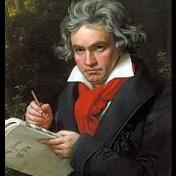Leaderboard
Popular Content
Showing content with the highest reputation on 10/16/2022 in all areas
-
Sometimes when I've found myself listening to my favorite compositions written by me, over and over, I start to wonder if my own creativity is leading me to become an artistic narcissist. I guess it might make sense that as a composer succeeds more and more at writing music, it will become better and better and more the kind of music that they really enjoy listening to though. But regardless of how good or sophisticated their music actually is, do you think the tendency is for them to be more attracted to their own music? I've heard interviews with John Williams that surprised me from this perspective though. He commented that when he listens to his own music he can't help but hear all the flaws in it. When I listen to his music on the other hand, I don't hear any flaws - I mostly just hear beauty and good music. Is this him just being modest or does he really not enjoy his music as much as others do? Or maybe he's heard it so much that he's grown sick of it? Then there's also something to be said about writing music with flaws and all included in it. That's what gives music its variety and interest. I don't think writing music should be about perfection or always striving to create the next masterpiece - I think that kind of approach could lead to burnout if anything. So maybe when I listen to my own music over and over, I DO in fact hear all the flaws but I've grown to like them through repeated listenings? What do you think and how do you approach your own music? How much do you listen to it and how much is too much?2 points
-
I think it is true. I've certainly gotten more attracted to my own music over the years. Yeah, I agree with that, and writing a masterpiece has never been a goal for me. Even when I think of writing a symphony or a concerto as goals, which they have been, I never think of them like they are masterpieces. They may very well turn out that way, but I don't think about whether they will or not, I just compose what I want to compose. I just approach my own music like it's just another piece. I don't think anything special about it in any way, even if it's written for an uncommon ensemble. My process often starts with me improvising a little idea or 2 at the piano. Then I think about whether I want it to be piano solo or for a different ensemble. Once I have that and the key figured out(the key is usually figured out with the improvisation itself, if I improvise an idea in C minor, I generally stick with C minor as the key of the piece for instance), I then write the piece, developing as I go. Take the C minor fantasia I'm currently composing for instance. It started off as an improvisation in C minor where I was cycling back and forth between 2 main ideas, a slow, legato idea that gains melodic momentum with each repetition and a fast, almost march-like, staccato idea. I then thought of expanding it out into a trio, so I did that, and my initial improvisation became the piano part of said trio. I do listen to my music a lot, about as often as I listen to pieces by other composers. I've never found my listening to be too much, it's never prevented me from having new ideas. It has however sometimes stopped the writing of one particular piece in its tracks before, especially early on as a composer in what I call my "Year of Ambition" where I was trying anything and everything that crossed my mind to compose. And when I look back at it, there are definitely pieces that I stopped before I got much further for one reason or another. Like my second piano sonata, stopped because of a K 545 resemblance. K 545 haunted me as a composer from when I was 12 and basically wrote a structural duplicate of K 545 in Bb major as what I would now call my Piano Sonata no. 0 all the way up until Mozart's birthday in 2019 when I finished writing my Piano Sonata no. 4 for which I purposefully borrowed from Mozart. Every time I'd try to write a sonata between those, I'd always be like "Damn it, K 545 hit me again, better stop before I get much further in this", not because I hated K 545, I don't, but rather, I just felt that it was a sign that I needed to study more sonatas rather than just listening to them, as at the time I wrote my Piano Sonata no. 4, K 545 was still the only sonata I really seriously studied. Or my String Quartet no. 1 that doesn't exist anymore because of the update issue on my old computer that made me lose a bunch of my scores, I stopped that because I just felt the string quartet was too hard. I still feel like it's incredibly hard. And indeed, sheer difficulty is one thing that even today will stop me in my tracks sometimes, it's why I have no string quartet pieces that I'd title String Quartet no. 1(at least not anymore), and it's why I have no finished fugues even with all my counterpoint and fugue studies over the years. But listening to my own works has never prevented me from having ideas for new compositions. If anything, it's encouraged it. I get so many ideas for compositions, that a lot of them end up being left unfinished without the intent of leaving them unfinished.1 point
-
The more variation there is in music, the higher the chances for a flaw. If you write a basic melody, like Mary Had a Little Lamb, it is very hard to find flaws in that tune. Unless the flaw itself is, the tune is boring! However the more advanced you get, the more tricks you add, the more you break music theory at the expense of making your music sound more interesting, the flaws will pile up. I do hear issues with my music when I listen to it. I used to have a very hard time getting back to key in my earlier works. Sometimes the key changing was just too unnatural. Sometimes I would overdo it with a section and drag it out too long. In one of my Ballades, you can clearly hear how I've evolved as a composer throughout the composition itself (it took me 6 months to write it, so naturally you'd hear the learning process). One of my older piano works was unfinished for some time, and I actually revived, refurnished, and added onto it. You can clearly hear the point at which I added onto it, but...it just makes it interesting. One of my piano works I decided to shorten a bit, so taking out parts is something I've done as well. There is also a Ballade I created that sounds just a bit too harsh, even for my taste. The harmony wasn't really that interesting, I don't know why I even composed it, but I did! And the only symphonic waltz I created probably has a ton of orchestration flaws, but it was a good learning experience for me. So, how much is too much? There is no limit, listen to your music all you want to your heart's content! My only suggestion is, just make sure it isn't the ONLY music you listen to. The best way to improve as a composer is by learning how to listen to and appreciate established composer's music. For instance, I've recently started to listen to Tchaikovsky's 6 symphonies, and I've discovered the beauty in his own "flawed" works (his words too!)1 point
-
Hearing all the flaws can also be a kind of narcissism. In narcissism you can't judge your own music in a more objective way. You will find it flawless or full of flaws. I clearly remembered after I had finished the fourth movement, I hated it so badly. I was exhausted mentally and intellectually, and I couldn't find any good in it. I told my dedicatee it's just trash. Now I love it so much despite of its flaw. I think it's true the composer will be more attracted to their own music. Just imagine a mother, regardless of how good or bad her offspring is, she will be atttacted to them. As a composer you should be the one who know your piece. The product, regardless of its quality, is what you have strived for and given birth through hard labour. I think the utmost thing, or what art can only do is to reflect yourself truly and honestly, without any disguise and fakeness. I think writing a mastetpiece is always my goal, but you have to write a masterpiece ABOUT YOURSELF in order to write a masterpiece to mankind. It's about uniqueness resonate with others, not only for yourself nor others. I think it's a trace of life's journey. It presents the period of life and thoughts when you compose it. You can apperciate it, hate it, laugh at your own naviety (both in terms of compositiinal technique and personal thought). But it is as it is, you cannot change it. Even if you try to improve it, that's only your thoughts now, and the past cannot be eradicated. For me I will treasure it and embrace it, no matter how good or bad it is. I always listen to it and think about it, and I think it will be too much if it prevents new pieces coming, luckily not in the present moment. As Beethoven said, every one of his quartets is good in its own way, even he admitted he loved op. 131 most. I will try to walk down a different path and see if I can write different and better music everytime. For example, after writing the first movement of my first clarinet quintet, I thought it the best music I could compose, and it prevented me to compose later movements, so I just went to compose a second clarinet quintet first. Later I had the desire to complete the first quintet, and now I find its third and fourth movement much better than the first. I deliberately write fugue and all kinds of fugal technique in the third, and keep the flow smooth in the fourth with smooth counterpoint. They are absent from the first. I think almost any artist will be narcissisitic, only in degree, otherwise they will not yearn to express themselves in different forms of art. But it should not prevent your progress and development. If not, it is beneficial to be narcissistic since you know what to do and how to do it.1 point
-
Yes, I don't believe for a moment he doesn't enjoy his own work. If I'm not writing music that I'd like to listen to, then I'm probably not writing music anyone else wants to listen to, either. I compose music that I would want to hear. For me, it's always that I have this idea for a piece that doesn't exist yet and I want to make it real. What would be the point of sinking all this time into it, studying it, etc. if I didn't want to listen to what I create, right? So I guess I'm more so composing as a listener and music lover, if that makes sense. I would say that I tend to listen to my newest finished work (I only release the stuff I'm happy with) about as much as I would listen to a new song I've discovered that I like and was written by someone else. However, I will add an important disclaimer at this point: Despite being at this for a long time, it's really only in the last few years that I feel I've achieved this. That I can really go back and listen to stuff I've done two years ago and still enjoy it. It's how I know I've progressed. I can put it in a playlist of other songs or whatever and honestly feel that it doesn't sound out of place in terms of quality or whatever to the other things I'm listening to in the same genre. I think it's one of the reasons I don't come out with as much stuff as before. In the past, I'd always be pleased with how something sounded compared to my last piece, but it never quite stacked up to the other stuff I was listening to, and that reminded me...I wasn't quite there yet to making what I envisioned and wanted to hear. So I was still chasing a big increase in skill. I genuinely feel this is the best gauge to track your progress as a composer or artist, but very few people have this sort of honesty with themselves; to put your music up against your heroes', have it in the same place, and it feels like it really belongs there. This is also something other people who simply enjoy listening to music and aren't composers will be able to tell. When you hit that point, it shows that you are ready, or at least capable of carrying the torch and it's a great feeling that will just inspire you to keep composing.1 point
-
I would say I hear flaws mostly, but that drives me to my next composition1 point
-
Normally my sweet spot for writing personally is around 6-10 minutes with my other stuff, but with this its supposed to be more of a collection of ideas than a fully matured set of rep. Thank you for all of your thoughts!1 point

.thumb.png.8b5b433a341551e913a34392660bc95b.png)


